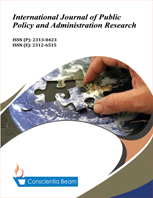The Trajectory and Diaspora of Women Imprisonment: An Analysis
DOI:
https://doi.org/10.18488/journal.74.2019.62.133.146Abstract
In Bangladesh, a very limited number of studies are prevalent to understand the condition of women prisoners. To know the real situation in this regard, we collected data by in-depth interviewing with 10 released women prisoners of two purposively selected jails (from Dhaka and Tangail district) from the two central districts of Bangladesh. For data collection and analysis for this study, we applied the qualitative method (case study). We analyzed the socio-economic factors behind their crime commission, their perception towards jail administration and the impact of their incarceration on their children. The findings revealed that lower socioeconomic condition can be a factor behind the women’s criminal outbreak. Lack of accommodation, proper food, drugs, prison atmosphere, staff's behavior, and employment opportunities are the major problems faced by the prisoners in jails. Their perception regarding jail administration was considerably adverse. We also found that mothers’ incarceration significantly influences their children regarding various short and long term exposure to behavioral problems. Moreover, children with incarcerated mothers are found to be more likely to suffer from mental health issues and deprived of the mainstream academic curriculum. Extensive separations from children have been shown to have an impact on incarcerated mothers as well. The legal rights and privileges for the women prisoners are in many cases absent in most of the cases analyzed here.

